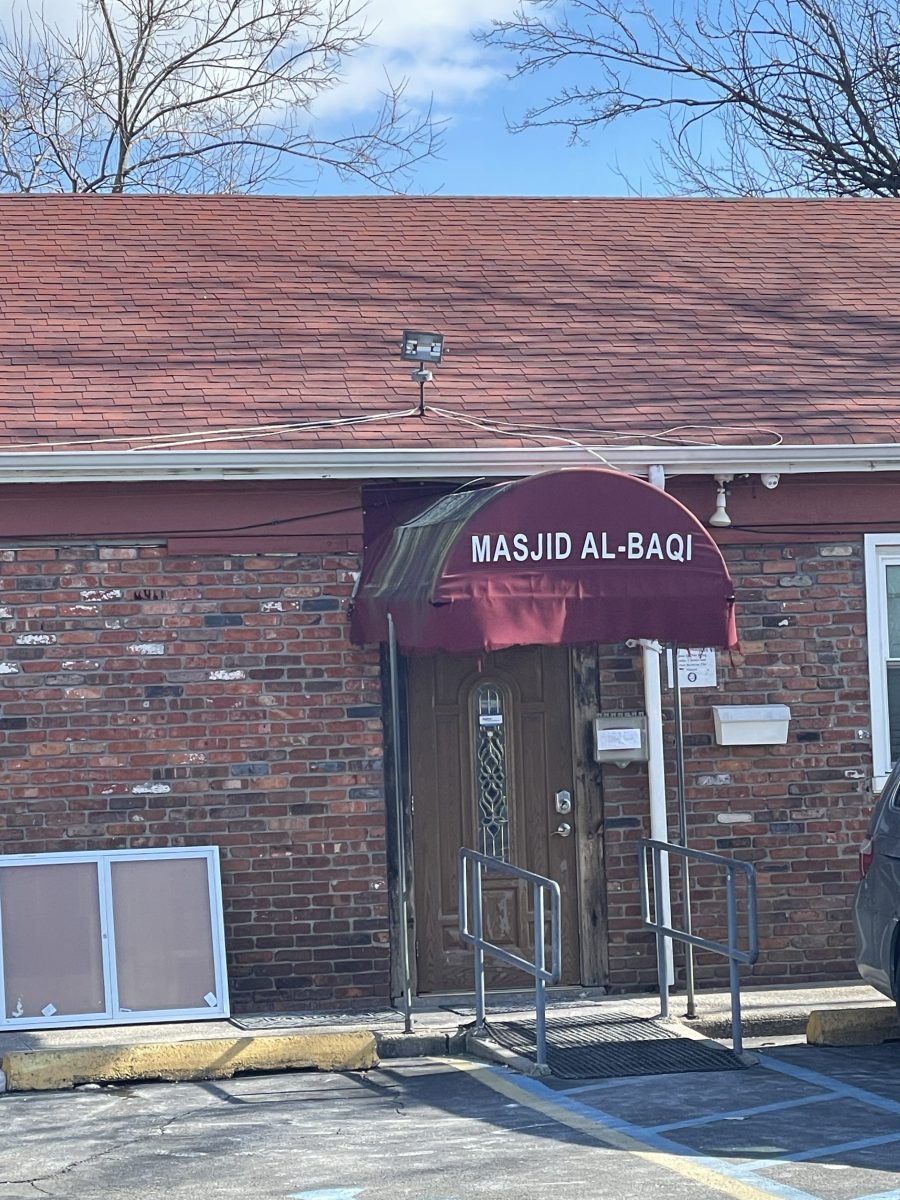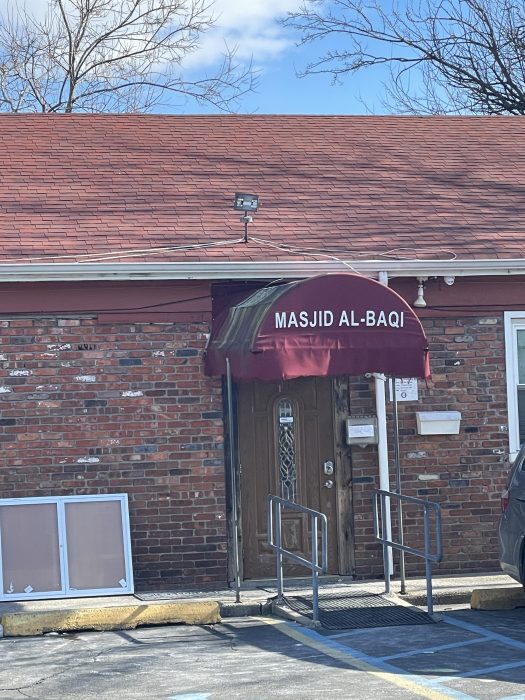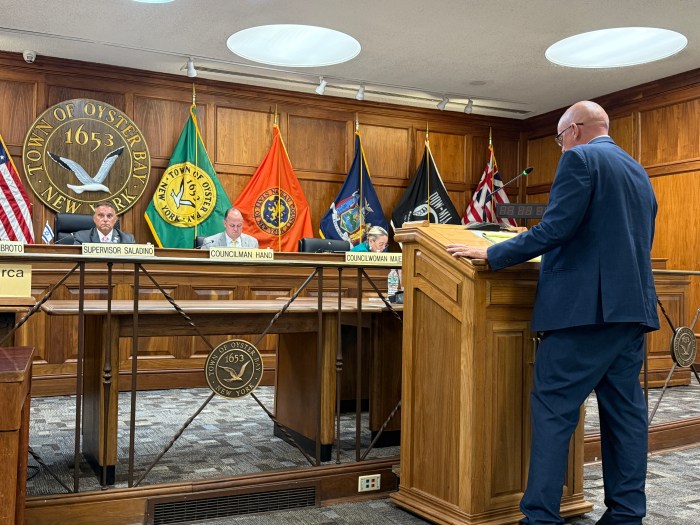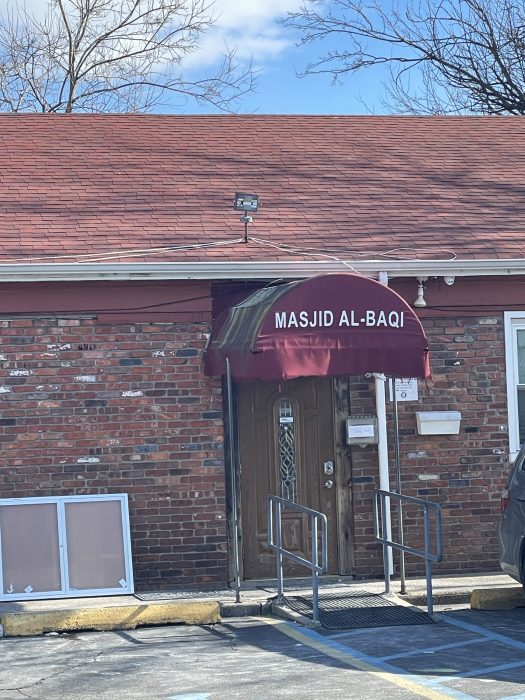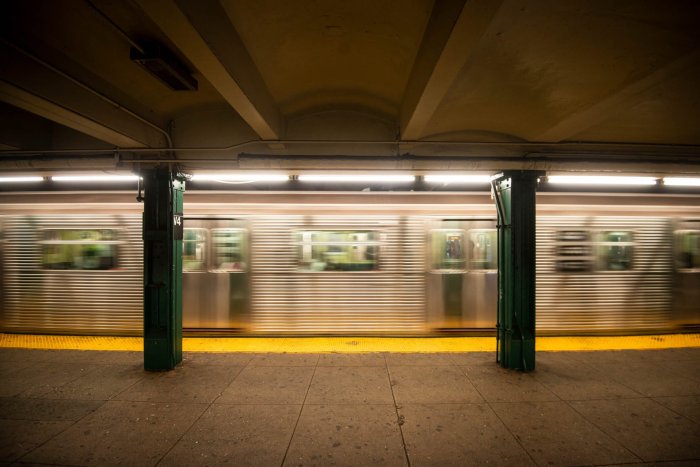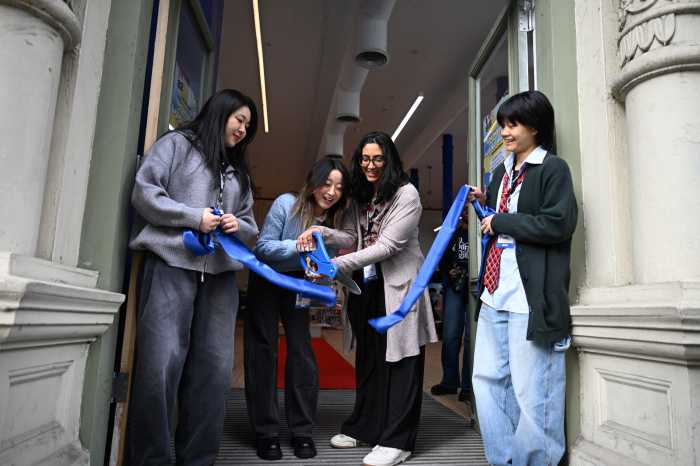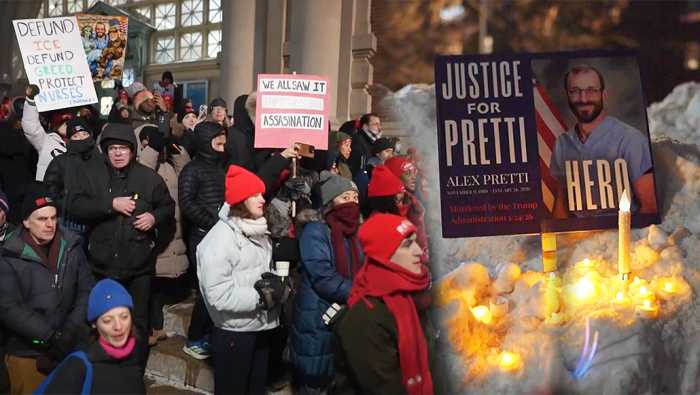The Muslims on Long Island and the Town of Oyster Bay have reached a new settlement that would allow for a smaller expansion of the Masjid Al-Baqi mosque in Bethpage following months of legal battles.
The town held two public meetings on Tuesday, Oct. 21, both of which were used to for public hearings about the town’s budget. During the second meeting, a resolution was added to the agenda, calling for the town board to enter into a settlement agreement with the Muslims on Long Island. The vote passed 6-1, with Council Member Lou Imbroto the only person against the agreement.
“I’ve been informed that we have been able to achieve in this settlement what the committee has asked for at a much higher level of safety,” Oyster Bay Town Supervisor Joseph Saladino said at the meeting.
The new agreement allows the mosque to expand to 9,950 square feet at ground level or above, marking a 1,100-square-foot reduction from Muslims on Long Island’s original proposal. The building will also have a maximum occupancy of 295 people under the agreement. The initial proposal called for a 464 maximum occupancy at the mosque.
The Muslims on Long Island will also pay a crossing guard for 18 months after the issuance of a certificate of occupancy, and the two sides will work toward establishing several safety measures, including an enhanced crosswalk, additional parking options, a new caution light and more.
The agreement also said an arbitrator would determine the Muslims on Long Island’s attorney fees.
Representatives from both parties shared positive sentiments in statements.
Moeen Qureshi and Imran Makda, two congregants named as plaintiffs in the lawsuit, said they are grateful that the mosque’s expansion plan was approved.
“Our new mosque will be a place where everyone – regardless of faith – will be welcome,” Qureshi said.
“This is a day of new beginnings,” Makda said. “Our doors will always be open to the community, and we hope our mosque will be a place where people come together in friendship and mutual respect.”
“This agreement resolves planning concerns and allows us to move forward as one community – with a smaller facility, less occupancy, improved traffic safety, added on-site parking, and a shared commitment to safety, quality of life, and mutual respect in Bethpage,” Saladino said.
The two sides had been expected to meet in court on Oct. 27. The town had asked to push back the date, but a U.S. District Court judge had denied the motion.
The town and Muslims on Long Island have been in a legal battle since January regarding the application to expand the Masjid Al-Baqi mosque in Bethpage. The organization cited the Religious Land Use and Institutionalized Persons Act, the First and Fourteenth Amendments to the U.S. Constitution, the New York State Constitution and Article 78 of the New York Civil Practice Law and Rules in its lawsuit against the town.
The Muslims on Long Island were seeking to replace two one-story buildings on their property with one, larger mosque. They said the town had blocked the expansion by presenting multiple legal issues, including a change in town law in 2022 that expanded the number of parking spots required for places of worship.
The change increased the number of parking spots required by the mosque from 86 to 155. According to the lawsuit, the initial proposal called for 88 spaces.
The town and the organization had first agreed to a settlement in August, which would have included the town approving the mosque’s plan, paying Muslims on Long Island $3.95 million, and updating its code to address and resolve claims made against it. The Muslims on Long Island had also agreed to certain provisions designed to mitigate the town’s asserted traffic and safety concerns.
The town backed out of the agreement less than two weeks later.
According to the 2022 town code, theaters were required to have one parking spot per three seats, while libraries and museums were required to have one parking spot per 300 square feet of gross floor area, or the enclosed floor space of a building.
The Oyster Bay Town board made changes to its zoning laws involving theaters, museums and libraries at its Tuesday, Oct. 7, board meeting in a bid to create equal parking spaces for secular and non-secular users.
The new law, unanimously approved by the board, set the minimum number of parking spaces required for theaters, museums, libraries and places of public assembly at one per three persons occupancy.
Town Attorney William McCabe presented the law to the board, saying it is necessary to try to have a “uniform minimum off-street parking ratio for most land uses, both secular and non-secular.”
Lawyers for the Muslims on Long Island had long alleged that the town had made its decision due to religious bias.
Oyster Bay Town Attorney Frank Scalera and town spokesman Brian Nevin had both denied those claims and said the town’s decision was made based on safety concerns.




